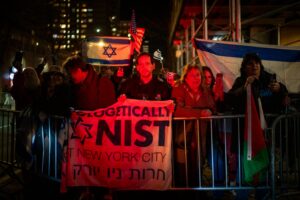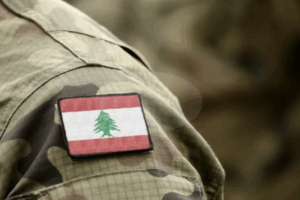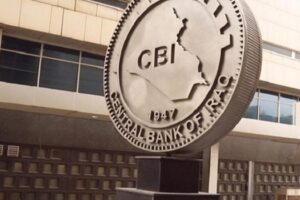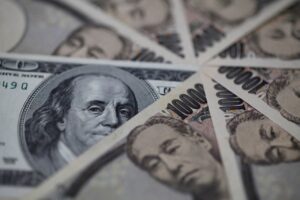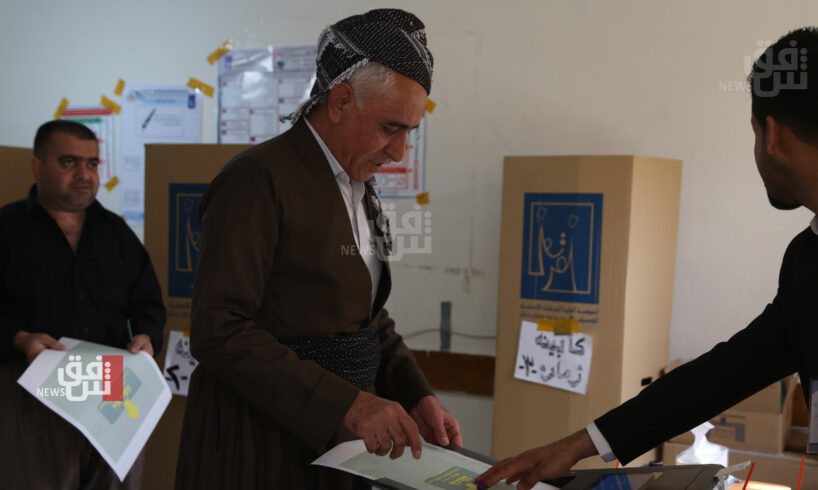
Shafaq
News
Iraq will
hold its next parliamentary elections on Monday, 11 November 2025, under the
supervision of the Independent High Electoral Commission (IHEC).
The race is
highly competitive, with 31 coalitions, 38 parties, and 75 independent lists
contesting 329 seats in the Council of Representatives, Iraq’s main legislative
body. IHEC monitors and records campaign activity to ensure adherence to
timelines, electoral ethics, and to prevent violations or misuse of state
resources.
Who
Can Vote
Eligible
voters must be Iraqi citizens, legally competent, aged 18 years or older in the
election year, registered in the national electoral rolls, and holders of an
electronic voter card.
The general
vote includes all eligible Iraqis inside the country and registered Iraqi
citizens abroad. Participants include civilians such as public-sector
employees, private-sector workers, students, and other citizens not serving in
the security or military services.
Special
Voting (the Special Ballot)
Special
voting is a dedicated polling phase held two to three days before the general
vote for specific voter groups unable to reach ordinary polling centers on
election day.
Eligible
categories include:
-Members of
the army, police, and Popular Mobilization Forces (PMF),
-Internally
displaced persons (IDPs) living in camps,
-Eligible
inmates permitted to vote under electoral regulations.
For the 2025
electoral cycle, special voting is scheduled for Saturday, 8 November 2025.
Legal
Framework and Districting
The 2025
elections are governed by Law No. 4 of 2023, passed on 27 March 2023, amending
Law No. 12 of 2018 on elections to the Council of Representatives and to
provincial and district councils.
Each of
Iraq’s 18 provinces (excluding Halabja) serves as a single electoral district,
and seat allocation follows the Sainte-Laguë 1.7 method. Under this formula,
the total number of valid votes in a province is divided by the number of seats
assigned to that province to determine the electoral quota—the indicative
number of votes required for one seat.
Seats are
distributed proportionally among lists according to their vote shares, and
remaining seats are allocated based on the Sainte-Laguë divisors (1.7, 3, 5, 7,
etc.). Within each winning list, candidates with the highest individual vote
totals occupy the available seats.
Quotas
–Women’s
Quota: At least 25% of total parliamentary seats are reserved for women. If
direct election results in a province fall short of this threshold, the quota
is completed using the highest-polling female candidates, including—if
necessary—those from non-winning lists, to meet the minimum required by law.
–Minority
(Component) Quotas: Reserved seats are allocated for Christians,
Sabean-Mandaeans, Yazidis, Shabak, and Fayli Kurds. These seats go to the
highest-polling candidates within their respective communities at the
provincial or national level as defined by law.
Results,
Audits, and Appeals
A 24-hour
silence period begins before polling, during which campaigning is strictly
prohibited.
Preliminary
results are typically announced within 24 hours after polls close. Final
results are issued after electronic audits, manual recounts (if required), and
the adjudication of complaints and appeals by IHEC and the Judicial Electoral
Panel, operating under the Supreme Judicial Council.
Manual
recounts are conducted in polling stations where irregularities are suspected,
where discrepancies exceed the allowed threshold, or upon order of the Judicial
Electoral Panel.
Complaints
may be filed by political entities or candidates within 72 hours of the result
announcements.
Appeals
against IHEC decisions must be resolved by the Judicial Electoral Panel within
10 days, after which final results are sent to the Federal Supreme Court for
ratification, rendering them official and binding.
Voter
Registry and Electoral Offenses
IHEC
verifies and updates the electoral rolls using biometric fingerprint data, in
cooperation with the Interior and Planning Ministries, to prevent duplication
and multiple voting.
Criminal
penalties for proven electoral violations include imprisonment and fines up to
five million Iraqi dinars (approximately USD 3,780) for offenses such as ballot
tampering, theft, coercion of voters, or deliberate impersonation.
Administrative
sanctions may include candidate disqualification or annulment of results at
affected polling stations, by decision of IHEC or the Judicial Electoral Panel.
Alliances
Key
Shia-Majority Alliances
-Reconstruction
and Development Alliance – led by Prime Minister Mohammed Shia al-Sudani
Formed ahead
of the 2025 elections, it brings together seven political entities, including
Falih al-Fayyadh and Ayad Allawi, as well as independents and tribal figures.
The alliance focuses on reconstruction and economic reform while aiming to
consolidate leadership within Shia coordination frameworks and secure a
significant parliamentary bloc for potential government formation.
-State of
Law Coalition – led by Nouri al-Maliki
A major Shia
alliance with strong bases in central and southern Iraq. Comprising 11 parties,
including the Islamic Dawa Party, Iraqi Turkmen Islamic Union, and Bashaer
Youth Movement, it also runs satellite lists in several provinces, such as
al-Hadba’a National (Nineveh), Diyala First, and Saladin Slate.
Seat record:
25 seats (2018) → 33 seats (2021).
National
State Forces Alliance – led by Ammar al-Hakim
A moderate,
reform-oriented current emphasizing national unity. It primarily partnered with
Haider al-Abadi’s Victory Alliance (Al-Nasr,) which has withdrawn from the 2025
race.
Seat record:
from 19 seats (2018) to 4 seats (2021) within the joint list.
Badr
List – led by Hadi al-Amiri
A core
component of the Shia Coordination Framework, with strong organizational
structures and influence in Diyala, Basra, and Wasit.
Seat record:
48 seats (2018) → 17 seats (2021).
Sadiqoun
List – led by Qais al-Khazali
Running
under the same name as in 2021, the list seeks broader outreach through tribal
alliances in areas such as Tikrit, where it has nominated candidates, including
Dr. Awan Kazem Aziz al-Tikriti. It also benefits from coordination with the
current government and aims to translate institutional footholds into electoral
gains.
Seats
(2021): 17.
Abshir
Ya Iraq Alliance – led by Hamam Hamoudi
Includes
seven groups such as the Islamic Supreme Council of Iraq, Iqtidar Watan
(Abdul-Hussein Abtan), National Foundations Gathering, and New Iraq Gathering.
Some candidates have links to armed factions, though such affiliations are not
formally declared.
Iraqi
al-Asas Coalition – led by First Deputy Speaker Ali Mohsen Akbar al-Mandlawi
An
eight-party coalition including al-Watad al-Iraqi, and National Iraq Movement.
Appeals to youth and independents; largely distant from Iranian influence. It
won two seats across ten provinces in the latest provincial elections.
Tasmeem
Alliance – led by MP Amer al-Fayez
Includes the
Istimrar Party of Basra Governor Asaad al-Eidani and the Justice and Unity
Gathering. Focuses on “national moderation” and local governance, expected to
perform strongly in Basra.
The
Patriotic Shiite Movement led by Muqtada Al-Sadr has not formally registered
for the elections. Based on prior statements and current indicators, its
continued boycott remains likely.
The absence
of the country’s most organized electoral machine—previously holding 73 seats
after the 2021 vote—could lower turnout in its strongholds and reshape Shia
dynamics.
Leading
Sunni Alliances
Sovereignty
(al-Siyada) – led by Khamis al-Khanjar
Once Iraq’s
largest Sunni bloc after 2021, it later separated from Speaker Mohammed
al-Halbousi’s camp. Retains influence in Al-Anbar and Saladin, emphasizing
Sunni rights within a unified Iraqi framework.
Taqaddum
(Progress) – led by Speaker Mohammed al-Halbousi
An alliance
with urban strength in Al-Anbar and outreach into Baghdad and Saladin. It
promotes governance efficiency and developmental priorities, with openness to
post-election coalitions.
In the 2021
parliamentary elections, the alliance won 37 seats, becoming one of the leading
Sunni blocs.
Azm
– led by Muthanna al-Samarrai
Operates
mainly in Saladin (Baiji, al-Shirqat, Samarra) and parts of Nineveh. Relies on
local and tribal networks and seeks to play a negotiating role in parliament.
Al-Hasm
al-Watani – led by Thabit Mohammed Saeed
A five-party
coalition, including Hasm for Reform, al-Wafa, and al-Hal, with influence in
Al-Anbar, Nineveh, and Saladin.
Major
Kurdish Parties
Kurdistan
Democratic Party (KDP) – led by Masoud Barzani
The largest
Kurdish political force, dominant in Erbil and Duhok, with influence extending
into disputed territories such as Kirkuk. Despite governance challenges, it
maintains a solid base and remains competitive.
Seat record:
25 seats in 2018, and 31 seats in 2021, consolidating its position as the
dominant Kurdish party in federal politics.
Patriotic
Union of Kurdistan (PUK) – led by Bafel Talabani
Centered in
Al-Sulaymaniyah, Halabja, and parts of Kirkuk. Though facing internal strains,
it continues to wield strong institutional and organizational influence.
New
Generation Movement (A-Jeel Al-Jadeed)– led by Shaswar Abdulwahid
A rising
reformist party appealing to youth and professionals, particularly in
Al-Sulaymaniyah, and seeking to expand its presence in Erbil and Duhok.
Civil
and Non-Sectarian Alliances
Al-Badil
(The Alternative) – led by Adnan al-Zurfi
Comprises 11
parties, including the Iraqi Communist Party (Raed Fahmi), National
Independence (Sajad Salim), al-Bayt al-Watani, and al-Watani (Hussein
al-Gharabi). Advocates a technocratic, anti-quota approach emphasizing
citizenship, rule of law, and transparency.
Democratic
Civil Alliance – led by Kazem Ali al-Rifai
Includes
networks such as the National Social Current, My Homeland Democratic
Initiative, and Renewed Horizon. Focuses on civil liberties, social justice,
and accountability.
Civil blocs
face resource and organizational limits compared with traditional parties but
retain potential influence in urban centers and among independents and youth
voters.
